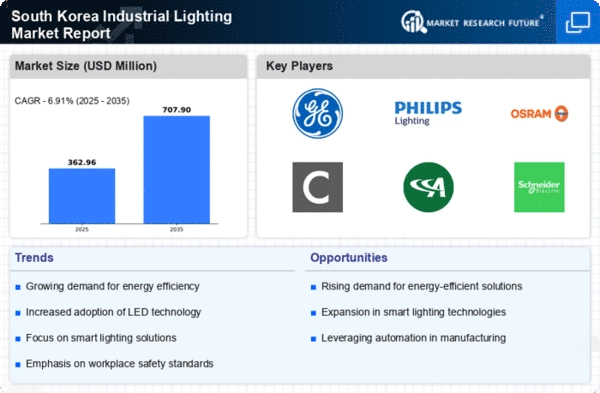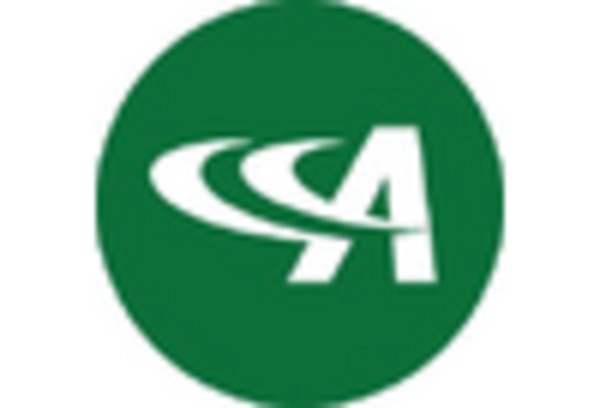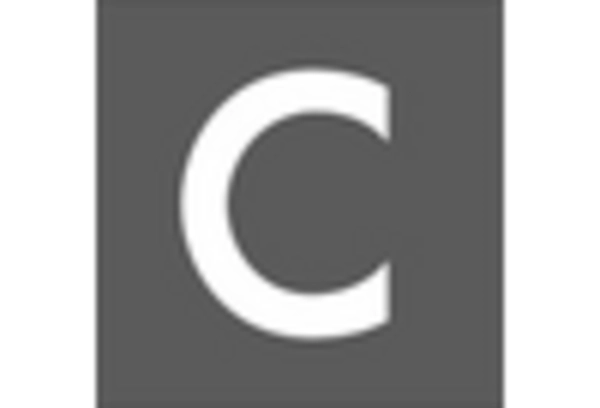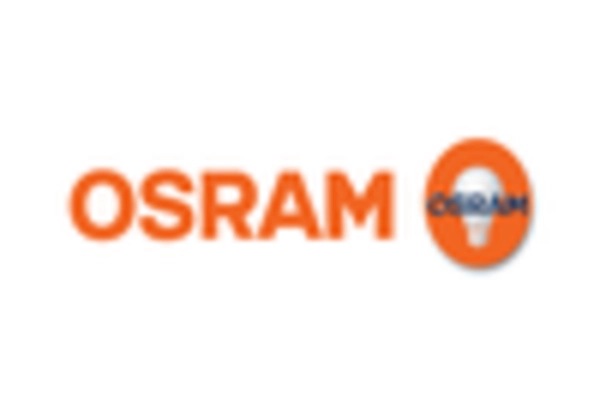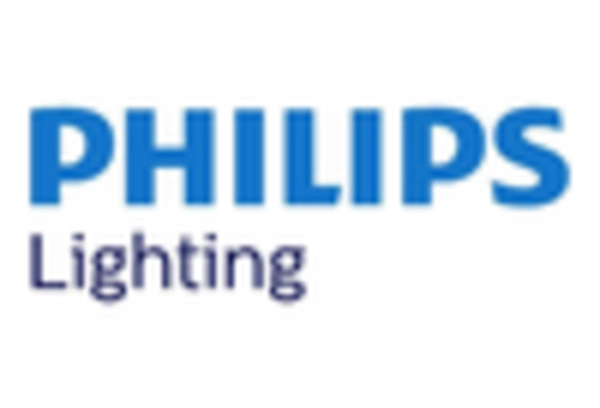Regulatory Compliance and Standards
The industrial lighting market in South Korea is increasingly influenced by stringent regulatory compliance and standards. The government has implemented various regulations aimed at enhancing energy efficiency and safety in industrial environments. For instance, the Energy Use Rationalization Act mandates that industrial facilities adopt energy-efficient lighting solutions. This has led to a growing demand for advanced lighting technologies that meet these standards. As a result, manufacturers are compelled to innovate and provide products that not only comply with regulations but also enhance operational efficiency. The market is projected to grow as companies invest in compliant lighting solutions, potentially increasing market value by approximately 15% over the next five years.
Increased Focus on Worker Productivity
An increased focus on worker productivity is significantly impacting the industrial lighting market in South Korea. Companies are recognizing the correlation between adequate lighting and employee performance, leading to investments in high-quality lighting solutions. Enhanced lighting not only improves visibility but also contributes to a safer and more comfortable working environment. As organizations strive to optimize productivity, the demand for specialized lighting systems that cater to these needs is expected to rise. This trend may result in a market growth of around 10% over the next few years, as businesses prioritize investments in lighting that support their workforce.
Technological Advancements in Lighting
Technological advancements play a pivotal role in shaping the industrial lighting market in South Korea. Innovations such as smart sensors, IoT integration, and advanced control systems are revolutionizing how lighting is utilized in industrial settings. These technologies enable real-time monitoring and management of lighting systems, leading to improved energy efficiency and reduced operational costs. The adoption of such technologies is expected to drive market growth, with estimates suggesting a potential increase in market size by 20% by 2027. As industries seek to optimize their operations, the demand for technologically advanced lighting solutions is likely to surge, further propelling the industrial lighting market.
Economic Growth and Industrial Expansion
The industrial lighting market in South Korea is closely tied to the country's economic growth and industrial expansion. As the economy continues to develop, there is a corresponding increase in industrial activities, which drives the demand for effective lighting solutions. The manufacturing sector, in particular, is experiencing robust growth, necessitating enhanced lighting systems to improve productivity and safety. This economic momentum is likely to result in a market growth rate of approximately 12% annually, as industries invest in modern lighting technologies to support their operations. The interplay between economic factors and lighting needs is a crucial aspect of the market landscape.
Sustainability and Environmental Concerns
Sustainability has emerged as a critical driver for the industrial lighting market in South Korea. With increasing awareness of environmental issues, industries are prioritizing eco-friendly lighting solutions that minimize energy consumption and reduce carbon footprints. The shift towards sustainable practices is not only a response to consumer demand but also aligns with government initiatives aimed at promoting green technologies. As a result, the market for energy-efficient lighting solutions is expected to expand significantly, with projections indicating a growth rate of around 18% over the next few years. This trend reflects a broader commitment to sustainability within the industrial sector, influencing purchasing decisions and market dynamics.

